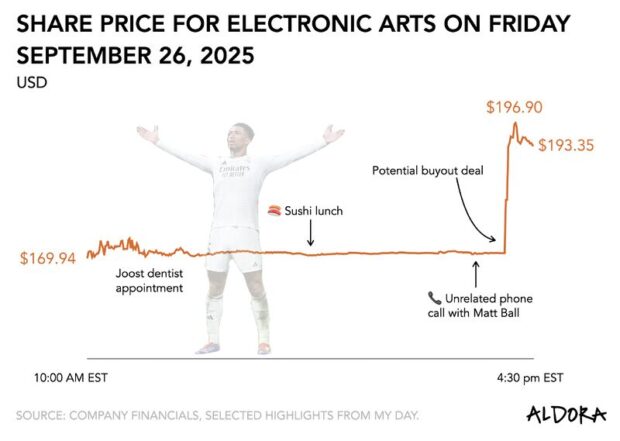
High drama in Big Tech compliance theater.
In a sweeping and sharply worded order, Judge Yvonne Gonzalez Rogers held Apple in willful violation of the court’s 2021 injunction in the Epic Games antitrust case.
The injunction, originally issued in 2021 and upheld on appeal, prohibited Apple from restricting developers from directing users to alternative payment mechanisms. Rather than comply, Apple introduced new roadblocks, including a 27% commission on off-app purchases and friction-inducing scare screens designed to dissuade users from leaving its ecosystem.
Apple’s effort to preserve a 27% cut on off-app payments wasn’t trivial—it represents billions annually in potential revenue retention. This is the first time a U.S. court has called Apple’s platform fee what it is: rent-seeking. It doesn’t mean the end of the 30% cut, but it does mean that fee structures will face greater scrutiny, especially when they’re engineered to look compliant while stifling competition. Even so, the court made clear this wasn’t accidental or incidental. It was engineered to maintain the cash flow from the world’s most lucrative digital tollbooth.
The court further found Apple’s actions to be a deliberate attempt to preserve its supracompetitive margins—profits that exceed what would exist in a truly competitive market.

It referred the matter to the U.S. Attorney for possible criminal contempt, which I understand is an extraordinary escalation in a high-profile corporate showdown. Judge Rogers emphasized that Apple’s conduct was not just legally insufficient but deceitful and intentionally obstructive, underscoring the tech giant’s refusal to relinquish its stranglehold on digital distribution economics.
“This is an injunction, not a negotiation. There are no do-overs once a party willfully disregards a court order.”
Damn.
Apple successfully turned a narrow legal loss into a broader institutional defeat, not because it broke the law once, but because it did it again after the court told them to stop.
The contempt ruling against Apple in the U.S. mirrors behavior it displayed elsewhere by weaponizing compliance to maintain control while appearing to play by the rules. The U.S. just sent the clearest message yet: performative compliance won’t cut it anymore. Regulators now have a stronger footing to challenge platform policies designed to look cooperative while preserving control.
Last year, in response to the EU’s Digital Markets Act (DMA)—a regulatory framework designed to curb the power of tech giants in digital markets—Apple unveiled a new App Store framework that technically complies with the rules while maintaining tight control—forcing developers to either stay in its ecosystem under the existing 30% commission model or opt for alternative distribution methods at the cost of a new €0.50-per-download “Core Technology Fee.”
The move—deemed “malicious compliance” by Epic (meaning: technically following rules while deliberately undermining their intent) and “extortion” by Spotify—underscores Apple’s long-standing tendency to shift goalposts in its favor, a habit now facing scrutiny as mobile gaming, which generates half of all interactive entertainment revenue, finds itself increasingly throttled by mounting platform fees and skyrocketing marketing costs.
This ruling could have particularly significant implications for the mobile gaming industry, where Apple’s policies have created unique economic challenges.
In mobile gaming, the winner’s curse is real: success often leads to growth that outpaces revenue, and scale just means losing more money faster. This ruling could help reverse that math. For publishers bleeding revenue to platform fees and ad tech firms, any break from Apple’s grip is a potential lifeline.
Developers no longer have to pretend Apple’s rules are neutral. They’re strategic weapons—and for the first time, regulators are willing to say so out loud. It flips the power dynamic just enough to open the door for more challenges.
Finally, for Epic, this ruling is more than just legal vindication—it’s a strategic milestone. It validates their years-long crusade to crack open Apple’s ecosystem and signals to regulators and developers alike that Big Tech’s self-regulation has hit a hard limit. The ripple effects could extend beyond games, setting a precedent for how payment rails (the infrastructure that enables money movement between parties) and platform access are governed across the entire app economy.
The current case serves as a real-world exemplar of how dominant firms use structural advantages to sustain market power, even in the face of legal constraints. Despite being fully aware of the injunction’s requirements, Apple chose to implement the most anticompetitive path, combining burdensome design limitations with a punitive 27% commission.
The court’s conclusion?
“Apple ignored internal warnings, allowed its finance team to override compliance-focused staff, and knowingly misled the court about its true intentions.”
It gets worse.
“To hide the truth, Vice-President of Finance, Alex Roman, outright lied under oath.”
The ruling doesn’t just constrain Apple. It initiates a strategic realignment that could fundamentally transform value creation and capture across the digital ecosystem.
By establishing that rent-seeking behaviors warrant not just civil penalties but potential criminal consequences, the court has dramatically altered the risk calculus for dominant platforms. As this precedent permeates through adjacent markets, expect a cascading series of adaptations: proactive platform concessions, more aggressive regulatory enforcement, and increasingly sophisticated developer strategies to reclaim economic agency.
The Apple-Epic confrontation may ultimately be remembered not merely as a corporate dispute but as the catalyst that reconfigured the structural foundations of the digital economy.







